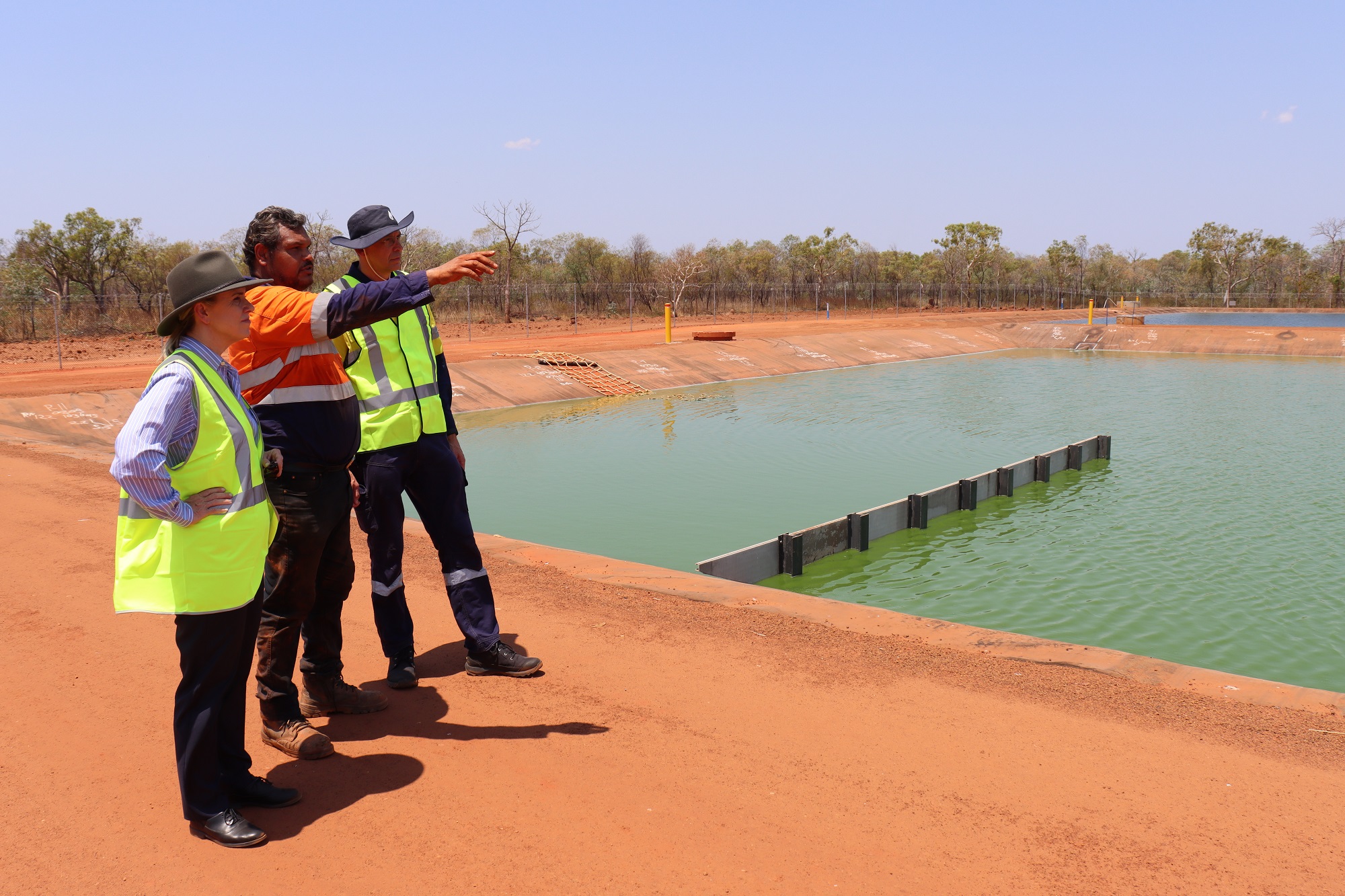First licensed wastewater treatment plant in WA Aboriginal community opens

Mowanjum in the Kimberley has become home to the first licensed wastewater treatment plant in an Aboriginal community in Western Australia following the completion of upgrade works under Water Corporation's new Aboriginal Communities Water Services (ACWS) program.
Delivered in partnership with Aboriginal communities, the ACWS program aims to address decades of community feedback, increase opportunities, and ensure access to reliable drinking water and wastewater services that meet or exceed standards under the National Agreement on Closing the Gap.
Located on Nyikina-Mangala land, about 10 kilometres from Derby, Mowanjum is an Aboriginal community with a highly fluctuating population, Water Corporation ACWS Program Director Anthony Bell said, as well as a place of significant cultural and historical interconnectivity.
“Mowanjum has a population between 300 to 500 people at given points in time, with a lot of people coming in and out of the community to visit family and participate in cultural activities. There are about 80 properties in the community and it’s also home to the incredible Mowanjum Art Centre and the annual Mowanjum Festival,” he said.
“The tribes attached to the area include the Worrorra, the Ngarinyin and the Wunumbal, so it’s a place that is influenced by three different language groups.
“The language groups in this community were actively displaced three times by the Australian government over the years. Families were removed from their northern homelands in the early 1900s, first to Kunmunya Presbyterian Mission, then to Wotjulum, near Yampi Sound until finally in 1975, the community was shifted to its present site.”
This community also holds a special place in Australian history as the knowledge holders for the great Wandjina or Rain Maker creation spirit. Namarali, the giant Wandjina figure enchanted millions at their international debut at the 2000 Sydney Olympics, Bell said,
“It’s a place of cultural significance, particularly Wandjina, which is a cultural belief in terms of how the tribes are connected as people to the community and Country as well as the cyclical rejuvenation of land and natural resources,” he said.
Delivering excellence
Bell said one of the most significant aspects of the project has been the investment in a local regional Aboriginal business, with Kimberley Civil and Drainage winning the $8.3 million contract to take on the work.
“Getting a local regional contractor has been fantastic for that business, but also for the community, as local people reinvest into local economies,” he said.
The upgrades involved construction of two new wastewater treatment ponds and relining the existing treatment ponds, and are set to enhance the operational and environmental performance of the plant and support future population growth in the community.
“Before the upgrades, the wastewater system wasn’t in good shape. The before and after photos are very different. The treatment plant is now able to cater for future demand for the community, but it’s also now more secure and therefore safer too,” Bell said.
Water Corporation spent a lot of time in the community discussing the upgrades, Bell said, and there was great support for the works.
“The community is really happy with the upgrades, but they're also excited about becoming the first Aboriginal community with a licensed wastewater treatment plant,” he said.
“Everyone was pretty much on board the whole time of delivering the project. They have been waiting for this for a long time, but it wasn't until the end, when the plant was officially opened by the Minister for Water, that it really hit home for the community.
“It means a lot to them to have the first licensed plant in the state in an Aboriginal community. Families now get to experience the same level of service as other residents in Derby and Broome. Their experience and the lessons we learnt along the way will help inform the rollout of the ACWS program in other communities.”
Commencing in April 2024, Water Corporation will also deliver a further $2 million minor works program in Mowanjum, including upgrading a wastewater pump station, pipe renewals, and an irrigation project to create green community spaces that support positive health outcomes.
Community minded
Every year, Water Corporation takes on Aboriginal trainees across the state, Bell said: “A few years ago, we took on a trainee with language and familial ties to Mowanjum in our Derby district depot. We also have a number of other trainees from the region who are completing their training and are supporting the operational servicing of that community asset”.
“It’s great to see. It’s the best outcome to see our trainees involved in the delivery of services within the communities they are from. And they're really excited to be working in their community; they get to go and work in an area they call home,” he said.
“It has always been the long-term plan to have those trainees involved in the operation of the plant. We’ve also been focusing on developing the skills of all team members to ensure we deliver culturally safe and appropriate services in this new operational environment.
“I’ve worked in remote communities for quite a long time. One thing I’ve learned is that our services must respond to the holistic environment in which they operate.
“This includes our ability to be employers of choice for Aboriginal talent, to be visible in the community with what we do, and how we do it, and make better choices with who we choose to procure, so that investment continues into our regional economies.
“On the 1 July this year, responsibility for water services in the 141 communities under the ACWS program transferred from WA’s Department of Communities to Water Corporation.
“The program will include tailored responses to the water infrastructure and service needs of these communities.”
Water Corporation has commenced engagement with 45 of the other 140 communities under the ACWS program to better understand their individual requirements and identify potential improvements.
